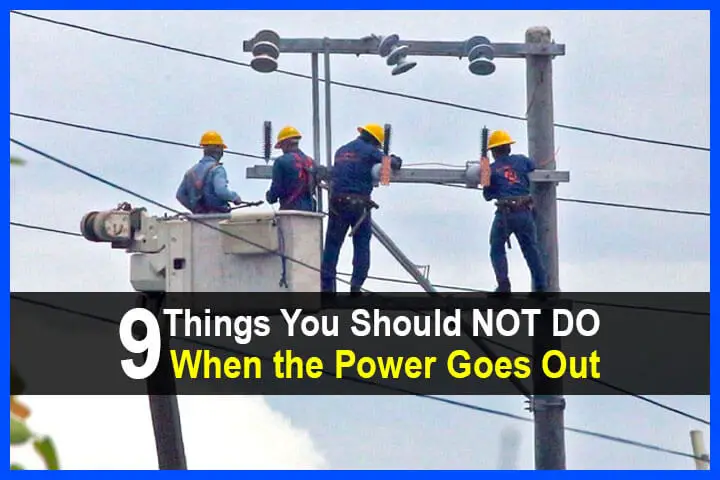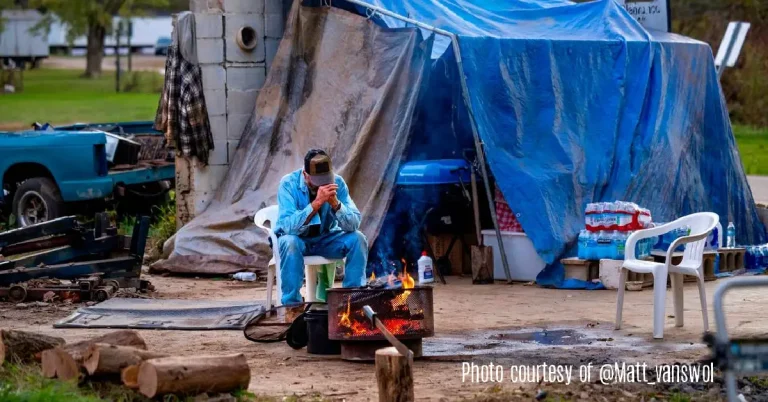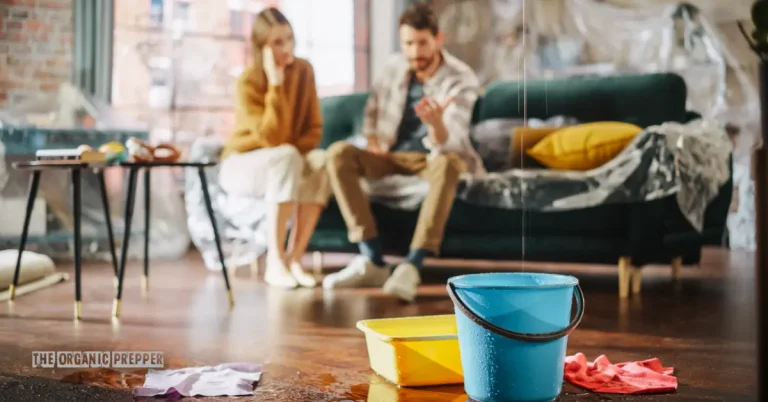Estimated reading time: 9 minutes

When the lights go out it’s always a surprise. Even those who are prepared can get a jolt in the midst of a storm when the power shuts off. Hopefully, you have a blackout kit and some kind of power outage plan so that you can easily restore lights and power essential devices and systems in your home.
It is common for us to give a lot of attention to what it is we should do during a blackout. However, have you considered the types of things you should never do?
You can seriously sabotage your whole situation if you are not careful during a power outage. Everything from frying appliances to burning the house down! It’s real. It can happen and we must be very careful. Here are 9 things you should not do when the power goes out.
1. DO NOT Waste Backup Power

In 2023 it is not uncommon for the average person to at least have a little bit of backup power. Something as simple as a small power bank can make a huge difference in a power outage. What do we reserve that backup power for?
When the power goes out, unless you are off grid, then you are just watching your resources drain and hoping it comes back on before they all run out. Make sure that you are only powering the things that make a difference and do your best to conserve energy for the most part.
Backup power is not there to power up your phone while you scroll through Instagram in an emergency.
Prepping for Backup Power
In this modern age we all need some means of backup power generation. It is essential that you have a solar generator or gas generator, or both. Personally, I use both. My solar generator comes from Point Zero Energy and is assembled right here in America. I need that kind of confidence in my preps.
2. DO NOT Kill your Cellphone

Look, cellphones have captured us all. There is plenty to complain about when it comes to our smart phones. That said, our day-to-day emergency preparedness is largely dependent on the cell phone.
Most people navigate with the phone, it is their primary means of communication, it is how they handle their finances, it is even their primary flashlight in most cases! Are our smart phones making us stupider? Maybe. Either way, they give us incredible power in an emergency, and you should limit use of your cellphone in a power outage.
Cellphone Backup
Modern powerbanks are incredibly effective. The best investment is a laptop powerbank as it contains enough charge to fill your phone’s battery many times over.
3. DO NOT Use a Gas Stove to Heat your Home

If your home is sealed up tight in a winter power outage, then using a gas stove to heat that home can become a deadly mistake. This method can lead to carbon monoxide poising and essentially kill your whole family.
Heating Alternative
Increasing ventilation will allow you to use things like kerosene heaters or even buddy propane space heaters. Standing electric heaters powered by an outdoor generator are a great option, too. Using your fireplace or woodstove to heat your home is likely your best option. Do you have firewood this year?
4. DO NOT Walk Around Outside in the Dark

In most cases you do not know what caused the power outage. It could have been downed powerlines and if you start wandering around outside then you could step right on them. You could trip on something in the dark and get hurt. Stay indoors and stay safe in a power outage.
5. DO NOT Burn Candles Unsupervised

One of the old power outage standbys is candlelight. Most of us have candles stored away for just the occasion. Did you know that over 8,000 home fires are started by candles each year? That is wild, right? Leaving candles unattended is a terrible idea and one that could cause an even greater emergency.
Strip Lights Instead
Rather than depending on candles for light in a power outage. I recommend clever placement of battery powered LED strip lights. The lighting is far superior. They can be set up in any room and they run on 3AA batteries.
6. DO NOT Leave Small Appliances Plugged In

Without the aid of a surge protector smaller appliances are at risk of being destroyed. Your safest bet is to unplug small appliances during a power outage to assure they are safe when the power comes back on.
Dealing with wavering voltages and power surges is only going to negatively affect your appliances. It will only take you a few minutes to move around the home and unplug them.
7. DO NOT Grill Indoors

The majority of American households use electric stoves. In a power outage your primary means of cooking and boiling water is no longer operational. Hopefully you have an answer for that in a gas generator to run your stove. If you do not, then you might resort to some radical means.
Bringing a grill indoors or even on an enclosed patio can create a serious risk of carbon monoxide poisoning. Grilling indoors is not worth the risk.
Off Grid Cooking
It might be better to invest in a Sun Oven or other kind of solar cooking device. If the sun is out these can be very effective when the power is out. They are also great for baking.
8. DO NOT Run a Gas Generator Indoors

Even a small portable gas generator is a deadly threat when operated inside the home. No matter what reason you come up with to run a gas generator inside, it’s a bad one. To put it frankly, you will kill everyone in your home if you do this. Gas generators must stay outside.
Extension Cords
To avoid this, invest in some long heavy duty extension cords. These cords will ensure that you can run power from your generator all over the home. Where you will need it most.
9. DO NOT Use Well Water

Most well pumps run on electricity. If you run your tap during a power outage, you can quickly drain your reservoir. If your reservoir drains, then it could trigger your pumps pressure switch. This will keep your pump from working once the power comes back on.
Drinking water storage is a necessity. You need at least 1 gallon of fresh drinking water per person per day in your home. It is a good idea to have at least 2 weeks’ worth of drinking water inside your home. This can be in water bottles, gallon jugs of water, or even tap water storage.
Conclusion

By simply avoiding many of these blackout pitfalls, you are going to be safer and better prepared. Remember, power outages, rolling blackouts, and conservation of energy orders are going to become more and more common. Even without catastrophe we can still have our electricity cut or at least limited.
Unfortunately, freedom of energy is disappea410ring all over the world as we abandon the philosophy of cheap energy for prosperity. Governments all over the world have already instituted these rolling blackouts in order to protect overburdened power grids while waiting for renewables to catch up.
Don’t be a victim of mother nature or mankind’s wrath. Both of which seem to operate on a set of rules that aren’t completely understood by you and I, the common man.

















